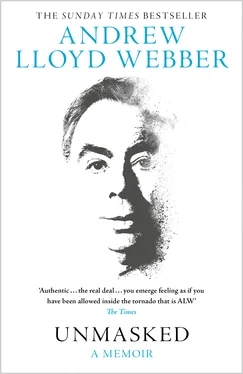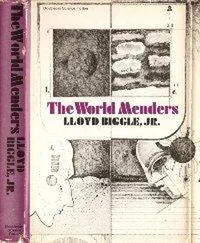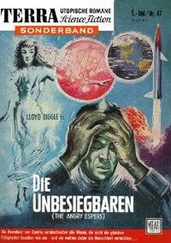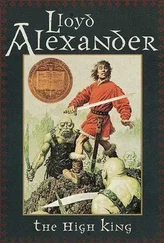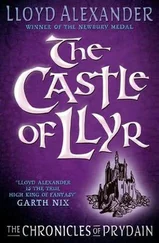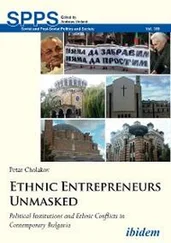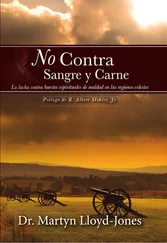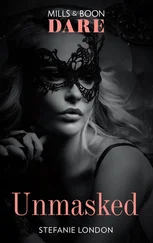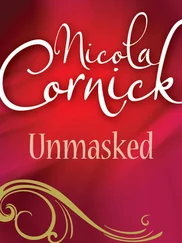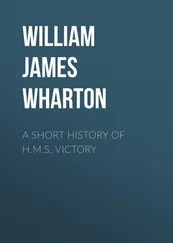What emphatically was not Arcadian was an incident still embedded irrevocably in my skull. My parents took me and Perseus the cat to Richmond Castle. The place was pretty empty, so Mum let Perseus off his dog lead. Out of the blue a bunch of cadets from the local army camp tramped into the castle courtyard as noisily as their boots would allow, caught sight of our terrified cat and chased him up the spiral staircase of one of the towers. Dad, of course, ran for cover. Even today I have a real paranoia of the army. Certainly it fuelled my childhood fear of conscription, which was still in action in Britain at that time, and ten years later heightened my sympathy with the pressganged US conscripts of the Vietnam War. That incident and the constant fearmongering headlines in the press about war over the Suez Canal throughout that hot 1955 summer led me to the dark thought that forces I could never control would some day destroy me and my little world of theatre and medieval buildings. It was during that otherwise idyllic holiday that I first prayed at bedtime.
VERY SOON THEATRES JOINED the list of abbeys, cathedrals, country houses and the like that so dominated my childhood. The 1950s saw the arrival of television. Soon the variety theatres that were so much a part of pre-war British life became sad, redundant, twitching corpses. Theatre after theatre succumbed to the wrecker’s ball. I found their plight irresistible. Some theatres literally had become ruins. I remember prising my way into the derelict Bedford Theatre in London’s Camden Town, a theatre made famous by the early twentieth-century artist Walter Sickert who painted it brimming full of vibrant life. Rain was pouring through a gaping hole in the roof. Two years later it was a memory.
Some of the lucky ones had a stay of execution by being turned into TV studios. The Chelsea Palace was one such. I was taken to a transmission of a then massive TV comedy series, The Army Game . The stalls had been raised to the level of the stage to create a huge flat floor on which the dinosaur TV cameras ducked and dived around teeny little sets. In the late 1950s that sort of show was broadcast live. For a brief period, the Harrington Pavilion was turned into a TV studio with a similar flat floor, but mercifully common sense prevailed and live theatrical performances resumed PDQ with a massive hit musical called The Weird Sisters based on Macbeth . Now the Chelsea Palace is yet another Kings Road shopping centre. What would a theatre producer give for such a wonderful building in that location now?
HOWEVER THE TV PROGRAMME that really game-changingly gripped me was a Saturday night rock’n’roll show called Oh Boy! It thrillingly made a virtue of being filmed in a theatre, a wonderful old variety house called the Hackney Empire, which intriguingly was designed by the same architect as the London Palladium, Frank Matcham. It was directed by Jack Good who went on to helm Catch My Soul , the rock Othello . He used the auditorium as if it were part of the set. Cameras swooped onto the stage over hysterical girls screaming at Brit male stars who all had surnames like Wilde, Eager or Fury. Equally great was the backing band Lord Rockingham’s XI with their intriguing choreographed instrument moves. I moaned to my mother that Brahms would be much enhanced if classical orchestras would only do this sort of thing. Years later Cliff Richard confirmed to me just how staged each show was and how he had been directed down to the last camera eyeball.
Oh Boy! made a most profound impression on me. From then on the words rock’n’roll were synonymous with musical theatre and the Harrington Pavilion was soon ablaze with rock shows.
BY THE TIME I hit double figures my brother Julian was becoming a star on his half-size cello. The word “prodigy” was bellowed above the traffic din at 10 Harrington Court and unsurprisingly Mum’s main interest switched to my younger sibling. Notwithstanding this, we both entered the Saturday morning junior school at the Royal College of Music, me toting my shiny french horn.
But as far as Mum was concerned I was at best a conundrum and so she gave up on my academic career and, buoyed by events at the school concert, I gave up on it too. Thoughts of my being the youngest ever Queen’s Scholar at Westminster Great (i.e. senior) School evaporated. I wasn’t even entered for the scholarship exam called “the Challenge.” Mum’s sole consolation prize was that I entered Westminster aged twelve, a full year earlier than usual. Meantime I was getting closer and closer to my deliciously naughty Aunt Vi.
A quick reminder. Auntie Vi was mother Jean’s elder sister. She married Dr George Crosby, the dumpy somewhat pompous doctor for whom Granny Molly had once worked as a secretary. Vi called him “Potto” which was really rather appropriate. That glorious word “panjandrum” could have been invented for him. Vi and George plus a marmalade cat named Cooper lived in a top-floor flat in Weymouth Street above his medical practice, close enough to the centre of London’s medical hub Harley Street, but the location was cheaper and actually rather nicer. I used to escape there as often as possible. The flat – or maisonette, as George puffed it up – seemed impossibly glamorous (my aunt would have said “chi-chi”) after the seldom cleaned haven for traffic noise addicts that was Harrington Court.
There was an upstairs drawing room which had been knocked into the room next door by means of an ever so “chi-chi” arch. Therein lurked a stereo record player on which Auntie played those Fifties Latin American records which showed off the marvels of stereo with question-and-answer bongo solos panned left and right only. There was a dining room with a bar underneath and a wine rack containing George’s collection of Barolo. Up to that time the only wine bottles I had seen had candles in them. There was Vi’s kitchen where there were herbs, onions, garlic and wine and where she cooked her recipes for the modern woman. In 1956 she had written and had published a hit recipe book The Hostess Cooks under her maiden name Viola Johnstone. Its premise was that in the Fifties no one could afford home help any more. The recipes were designed so that our hostess could emerge from the stoves, mascara intact, to entertain out front as if an army of sous chefs had been slaving since dawn and she had had a decent post-lunch siesta. It was a far cry from the over-boiled brussels sprouts of Harrington Court.
Then there were Vi’s friends. There was Tony Hancock of TV’s iconic Hancock’s Half Hour sitcom. Vi introduced me to him in his flat where he was teaching a parrot to say “Fuck Mrs Warren.” Mrs Warren was his cleaner – whom he loathed – so he had embarked on a strategy to get her to quit. She didn’t. Auntie told me that one day the parrot mysteriously cried, “Hancock has no bollocks.”
There was film director Ronald Neame who had been David Lean’s legendary cameraman on classic British movies like Great Expectations . One day I was to work with him on The Odessa File . There was Val Guest and his glamorous actress wife Yolande Donlan. I was in total awe of her as she was the lead in the movie Expresso Bongo with Cliff Richard. Ballet nuts might be intrigued to know that the rock’n’roll sequences in this epic were choreographed by Sir Kenneth MacMillan, another name who would cross my professional path. A few years later, Val discovered Raquel Welch in the movie One Million Years B.C. It was Val who created the iconic image of Miss Welch in a doe-skin bikini which he used as his Christmas card. I’ve still got mine.
Finally there was Vida Hope, the theatre director who had a huge hit with The Boy Friend , one of the few Fifties British musicals to hoof it to Broadway. Julie Andrews was the young lead and it was in The Boy Friend that she was headhunted for My Fair Lady . I remember Vida railing passionately against a Broadway musical she had just seen. “A nauseating show with a fifty-five-year-old woman pretending to be an eighteen-year-old nun, plus a load of saccharin cute children.” She was referring, of course, to Mary Martin in The Sound of Music .
Читать дальше
